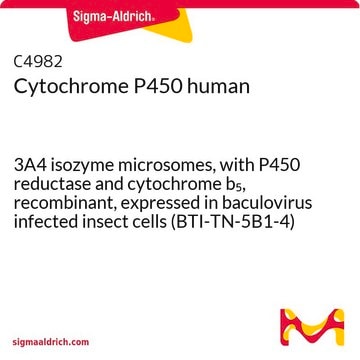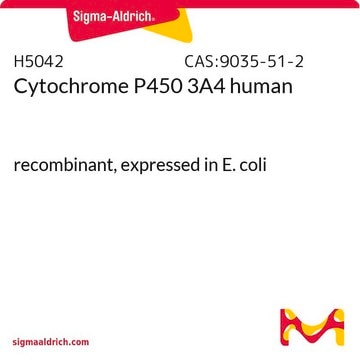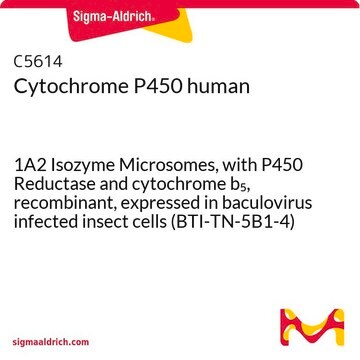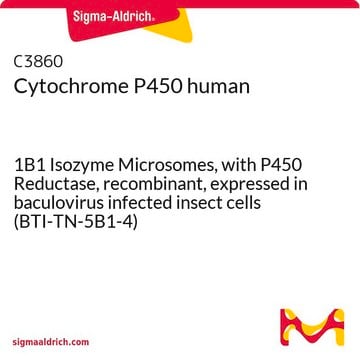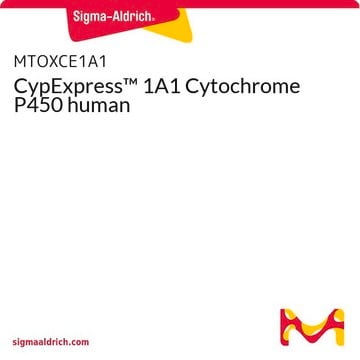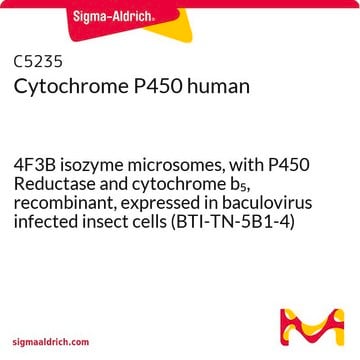C3735
Cytochrome P450 human
1A1 Isozyme Microsomes, with P450 Reductase, recombinant, expressed in baculovirus infected insect cells (BTI-TN-5B1-4)
About This Item
Productos recomendados
biological source
human
Quality Level
recombinant
expressed in baculovirus infected insect cells (BTI-TN-5B1-4)
form
solution
specific activity
≥4 units/pmol enzyme
mol wt
45-60 kDa
packaging
vial of 0.5 nmol
technique(s)
activity assay: suitable
solubility
water: soluble
suitability
suitable for molecular biology
UniProt accession no.
application(s)
cell analysis
shipped in
dry ice
storage temp.
−70°C
Gene Information
human ... CYP1A1(1543)
¿Está buscando productos similares? Visita Guía de comparación de productos
General description
Cytochrome P450 (CYP) enzymes are a family of enzymes that are encoded by the P450 genes. These enzymes are membrane bound hemoproteins. that are mainly found in the liver’s endoplasmic reticulum.
Biochem/physiol Actions
Physical form
Preparation Note
Storage Class
12 - Non Combustible Liquids
wgk_germany
WGK 2
flash_point_f
Not applicable
flash_point_c
Not applicable
Certificados de análisis (COA)
Busque Certificados de análisis (COA) introduciendo el número de lote del producto. Los números de lote se encuentran en la etiqueta del producto después de las palabras «Lot» o «Batch»
¿Ya tiene este producto?
Encuentre la documentación para los productos que ha comprado recientemente en la Biblioteca de documentos.
Los clientes también vieron
Nuestro equipo de científicos tiene experiencia en todas las áreas de investigación: Ciencias de la vida, Ciencia de los materiales, Síntesis química, Cromatografía, Analítica y muchas otras.
Póngase en contacto con el Servicio técnico